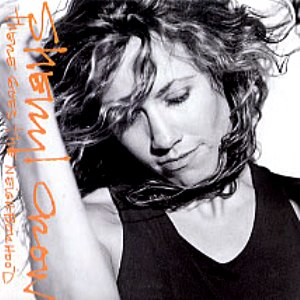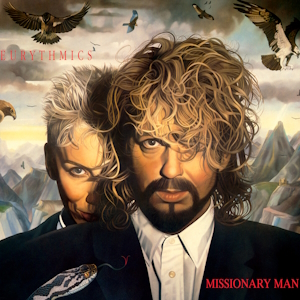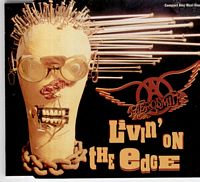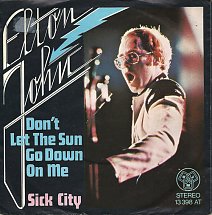
"Un-Break My Heart" is a song by American singer Toni Braxton for her second studio album, Secrets (1996). The song was written by Diane Warren and produced by David Foster. It was released as the second single from the album on October 7, 1996, through LaFace Records. The song is a ballad about a "blistering heartbreak" in which the singer begs a former lover to return and undo the pain he has caused. It won Best Female Pop Vocal Performance at the 39th Annual Grammy Awards in 1997. It has sold over 10 million copies worldwide and nearly 3 million in the United States alone, making it one of the best selling singles of all time.

"I Will Always Love You" is a song written and originally recorded in 1973 by American singer-songwriter Dolly Parton. Written as a farewell to her business partner and mentor Porter Wagoner, expressing Parton's decision to pursue a solo career, the country single was released in 1974. The song was a commercial success for Parton, twice reaching the top spot of Billboard Hot Country Songs: first in June 1974, then again in October 1982, with a re-recording for The Best Little Whorehouse in Texas soundtrack.

"With Arms Wide Open" is a song by American rock band Creed. It was released on April 18, 2000, as the third single from their second studio album, Human Clay. The song reached number one on the US Billboard Hot 100 in November 2000, becoming the band's first and only song to top the chart. The song also received honors at the 43rd Annual Grammy Awards in 2001, being nominated for Best Rock Vocal Performance by a Duo or Group, as well as Scott Stapp and Mark Tremonti winning the Grammy Award for Best Rock Song.

"Proud Mary" is a song by American rock band Creedence Clearwater Revival, written by vocalist and lead guitarist John Fogerty. It was released as a single in January 1969 by Fantasy Records and on the band's second studio album, Bayou Country. The song became a major hit in the United States, peaking at No. 2 on the Billboard Hot 100 in March 1969, the first of five singles to peak at No. 2 for the group.

"There Goes the Neighborhood" is a song by American singer-songwriter Sheryl Crow. The song was released as the second single from her third studio album, The Globe Sessions (1998), on November 23, 1998, and won an award for Best Female Rock Vocal Performance at the 43rd Annual Grammy Awards in 2001.

"Don't Wanna Lose You" is a song by Cuban-American singer-songwriter Gloria Estefan, released on June 21, 1989 as the first single by Epic Records from her debut solo album, Cuts Both Ways (1989). The song is written by Estefan and produced by her husband, Emilio Estefan, Jr. It reached number one in the US, where it became her second number-one single on the US Billboard Hot 100 and was also certified Gold.

"Better Be Good to Me" is a song written by Mike Chapman, Holly Knight, and Nicky Chinn, recorded by Tina Turner for her solo studio album Private Dancer (1984) and released as a single in early September 1984. The song was originally recorded and released in 1981 by Spider, a band from New York City that featured co-writer Knight as a member. Turner's version was successful in the United States and peaked at No. 5 on the Billboard Hot 100 and No. 6 on the then-Hot Black Singles charts. At the 27th Annual Grammy Awards in 1985, it won Best Rock Vocal Performance, Female, one of four Grammys awarded to Turner's Private Dancer album at that ceremony. The song was also included on the Miami Vice soundtrack.

"Missionary Man" is a song by British pop duo Eurythmics from their fifth studio album, Revenge (1986). The song features Jimmy Zavala on harmonica and Joniece Jamison on backing vocals.

"Cry" is a song by American country music singer Faith Hill. It was released as the first single from her fifth studio album of the same name (2002). The song was originally written and recorded by singer-songwriter Angie Aparo for his 1999 album, The American. In 2003, at the 45th Annual Grammy Awards, Hill won the Grammy Award for Best Female Country Vocal Performance for "Cry", marking her second win in the category.

"Another Sad Love Song" is a song by American singer-songwriter Toni Braxton. Written and produced by Daryl Simmons and Babyface, featuring additional production from L.A. Reid, it was released as the lead single and its opening track from Braxton's self-titled debut album (1993) on June 11, 1993, by LaFace Records and Arista Records. Lyrically, it talks about Braxton complaining that every song played on the radio is a reminder of her ex-boyfriend.

"Breathe Again" is a song by American R&B singer Toni Braxton. It was written by Kenneth "Babyface" Edmonds and produced by Edmonds, L.A. Reid, and Daryl Simmons for Braxton's self-titled debut album (1993). Its lyrics evokes a sense of nostalgia from a relationship that has run its course. The ballad was released as the album's second single on October 6, 1993, by LaFace and Arista Records.

"Livin' on the Edge" is a song by American hard rock band Aerosmith. The song was written by Steven Tyler, Joe Perry, and Mark Hudson. It was released in February 1993 as the first single from the band's commercially successful album Get a Grip. The single reached number 18 on the US Billboard Hot 100 chart, number three on the Cash Box Top 100, and number one on the Billboard Album Rock Tracks chart, where it remained for nine weeks. In the UK, the song peaked at number 19 on the UK Singles Chart in April 1993.

"Don't Let the Sun Go Down on Me" is a song written by English musician Elton John and songwriter Bernie Taupin. It was originally recorded by John for his eighth studio album, Caribou (1974), and was released as a single that peaked at number two on the Billboard Hot 100 chart, and reached number 16 on the UK Singles Chart.
Toni Childs is an American-born, Australian singer-songwriter.

"One of the Living" is a song written by Holly Knight and produced by Mike Chapman. It was recorded by American singer Tina Turner for the soundtrack album to the 1985 film Mad Max Beyond Thunderdome, which starred Mel Gibson and Turner. It was one of two songs which Turner recorded for the film, the other being "We Don't Need Another Hero (Thunderdome)".

Union is the debut album by American singer-songwriter Toni Childs. Released in 1988, the album peaked at number 63 in the US. It also peaked at number one in New Zealand, where it was certified platinum. Four singles were released from the album: "Stop Your Fussin'", "Don't Walk Away", "Walk and Talk Like Angels", and "Zimbabwae". "Stop Your Fussin'" reached the top 20 in Australia, New Zealand, and Germany while "Don't Walk Away" became Childs' only single to chart in the United States, reaching number 72 there.

"Rope" is a song by American rock band Foo Fighters, the second track on their seventh studio album, Wasting Light (2011). Like the rest of the album, it was written by all band members and produced by the band alongside Butch Vig. The song originated during the tour supporting Echoes, Silence, Patience & Grace (2007), the band's sixth studio album. A demo version was recorded after the tour ended in 2008. Some acts that have been noted as influences on the song include Rush and Led Zeppelin.

"Walk" is a song by American rock band Foo Fighters, released as the third single from their seventh studio album Wasting Light. It was written by Dave Grohl and co-produced by Butch Vig.

"We Don't Need Another Hero (Thunderdome)" is a song written by Graham Lyle and Terry Britten. It was recorded by American singer Tina Turner for the soundtrack album to the 1985 film Mad Max Beyond Thunderdome, which starred Mel Gibson and Turner. On the heels of Turner's multiplatinum album Private Dancer (1984), the song was released as a 7-inch single, an extended version was released as a 12-inch single and on the film's soundtrack album. In the United Kingdom, a shaped picture disc was also issued. The power ballad received a Golden Globe Award nomination for Best Original Song and a Grammy Award nomination for Best Female Pop Vocal Performance. As songwriters, Lyle and Britten received the Ivor Novello Award for Best Song Musically and Lyrically.

"Stop Your Fussin'" is a song by American-Australian singer-songwriter Toni Childs from her first studio album, Union (1988). Childs wrote the song with David Ricketts, and they both co-produced the track with David Tickle. The song was first released in Japan in July 1988 as Child's debut single and was issued in Australia, Europe, and the United States later that year; in the latter country, it served as Childs' second single, after "Don't Walk Away". "Stop Your Fussin'" became a top-five hit in New Zealand and South Africa while reaching the top 20 in Australia and Germany. The song's music video, directed by Michael Patterson and Candace Reckinger, shows Childs singing the song on a tropical beach.



















